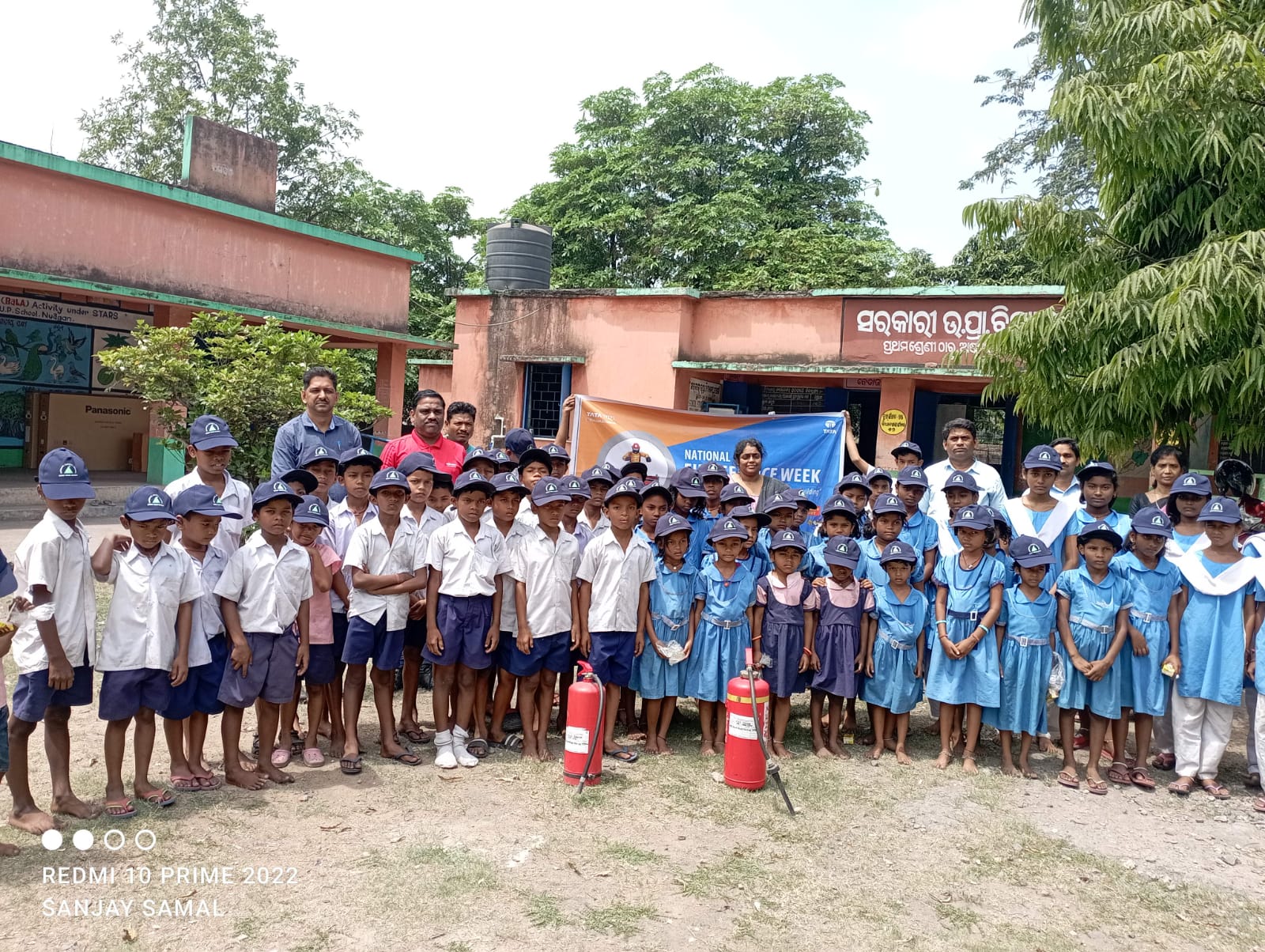Subscribe our Weekly Newsletter
RFP Invited for Livelihood & Skills - Sustainable Manufacturing

Organization: Sustainable Communities India Private Limited (SCI)
Apply By: 10 Mar 2021
RFP - Livelihood & Skills–Sustainable Manufacturing
About the Organization:
Sustainable Communities India Pvt. Ltd. (SCIPL), a wholly owned subsidiary of the Institute for Sustainable Communities (ISC) is an environmental consulting company registered in New Delhi, India. The Institute for Sustainable Communities (ISC) is a not-for-profit organization that builds the capacity of local leaders and organizations to address important global issues including climate change, sustainable development, and environmental protection, resulting in embedded capacity and lasting change.
Request for Proposal:
As widely defined by organizations such as the USEPA, sustainable manufacturing refers to the creation of manufactured products through economically sound processes that minimize negative environmental impacts while conserving energy and natural resources. Sustainable manufacturing measures thus include processes such as greater adoption of CleanTech - a combination of energy efficiency (EE) and distributed renewable energy (DRE) technology applications, innovative approaches, and systems that improve energy performance, reduce overall energy consumption, and carbon emissions.
SCIPL is helping ISC implement a sustainable manufacturing program entitled “Sustainable Manufacturing Livelihoods Program (SMLP)” that aims to accelerate India’s green recovery and unlock livelihood opportunities by addressing factories’ challenges in obtaining skilled practitioners to implement sustainable manufacturing measures such as greater adoption of energy efficiency and renewable energy interventions.
Accordingly, SCIPL seeks to appoint individuals and/or organizations as Consultants in India to support the program by conducting, (a) a livelihood opportunities map for sustainable manufacturing sector such as CleanTech adoption and; (b) a skills gap and industry demand assessment for sustainable manufacturing/green jobs in India, through a combination of desk research and assessment studies, estimates based on findings outlined by various research organisations previously and a comprehensive analysis of the on-ground situation through consulting key players in the ecosystem
The Consultant will be responsible for the following specific tasks:
I. Livelihood Opportunities Assessment Map for Sustainable Manufacturing (Expected level of effort: up to 20 days)
Conduct an opportunities assessment map for sustainable livelihoods analysing the market size of the sustainable manufacturing sector for instance estimating the scale and potential of energy efficiency (EE) as well as renewable/clean energy (RE) adoption and the subsequent enabling of livelihood and employment opportunities through such adoption, from a localized sub-national cluster specific lens[1]. Such a lens implies developing a framework to assess the opportunities at a national scale and demonstrating the same by estimating the livelihood potential i.e. the potential for job creation owing to the update of sustainable manufacturing practices in specific clusters. Following are the key aspects expected to be detailed out in the proposed opportunities assessment map:
In-depth landscape analysis of the sustainable manufacturing market in terms of its size, market and industry requirements and existing employment opportunities - comprehensive analysis and comparison of key energy intensive sectors as well as the labor-intensive energy sectors.
- Analysis of existing standards and scale of EE and clean energy measures adopted by industries as well as the potential opportunities for the scaled take up of such measures for sustainable manufacturers practices.
- Overlay of current market opportunities and livelihoods assessment for sustainable manufacturing jobs and the challenges to the growth of such job markets within each specific energy intensive industrial sector.
- Policy and regulatory landscape for the creation of sustainable manufacturing/green jobs.
- Potential creation of livelihood opportunities and sustainable manufacturing/green jobs owing to the scaled adoption of EE and clean energy measures in the different industrial sectors as well as the employment effects across the EE and clean energy value chain i.e., identify and assess RE technologies’ potential to generate employment including direct job years[2].
- Specifically identify such energy efficient and clean technologies with the potential to generate employment and investments in which support the labor market.
- Recommendations to increasing livelihood opportunities through the implementation of EE and clean energy interventions (amongst other focus areas in sustainable manufacturing), use of appliances for increased production and innovative livelihood generation business models.
Deliverable: Opportunities Assessment Report
- Identification of specific indicators/areas for sustainable manufacturing and their market sizing.
- Estimating corresponding job opportunities.
II. Skills Gap & Industry Demand Assessment for Sustainable Manufacturing Jobs (Expected level of effort: upto 20 days)
Conduct a skills gap and industry demand assessment for sustainable manufacturing jobs in India by analysing the (a) skills deficit in the sustainable manufacturing sector including an analysis of gender aspects of the skills gap and the unique challenges facing women and; (b) industry demand for green-skilled employees to gauge the scope of needs as well as the sectors and geographies with highest demand, including the potential for female employees. Following are the key aspects expected to be detailed out in the proposed skills gap and industry demand assessment:
Skill Gap Analysis
- Recognizing the strengths of the sustainable manufacturing/green economy within the industry and the gaps in the ecosystem especially in terms of technical and human resource barriers.
- Analysis of the existing available skill set in the sustainable manufacturing sector including socio-economic indicators and baselines. In-depth study of the gaps in the existing skill set in terms of the skills, competencies and capabilities which are required for the scaled growth of the sustainable manufacturing sector as well as adoption of energy efficiency and clean measures.
- Challenges faced by the workforce in building required skills, competencies and capacities.
- Analysis of the female workforce in the sustainable manufacturing sector and their participation across the energy value chain. Gendered analysis of the skills gaps and the specific barriers and contextual factors facing women in the access to building such capacities.
Industry Demand Assessment
- Assessment and estimation of the industry demand for skills and capabilities in the sustainable manufacturing sector - to identify and assess the occupations and skills required by the industrial sector in terms of training, certifications, core competencies etc. so as to support and advance the energy transition.
- Current demand of the industry and sustainable manufacturing market for green-skilled employees including specific potential for female employees - analysis of key energy intensive sectors, their prevailing skill gap status as well as high demand geographies. This may include frameworks for demand assessment and livelihood assessment.
- Identification of employment opportunities for women in the sustainable manufacturing ecosystem such as opportunities in the renewable energy sector, energy efficiency sector etc.
- Specific challenges faced by women in availing such employment resources, barriers to their participation in the sustainable manufacturing ecosystem and factors governing the low representation of female employees including aspects such as the lack of access to opportunities for women due to safety and security concerns and misconception about women’s capabilities in specific roles.
- Factors deterring industries and academic institutions from investing in women’s human and social capital through education, skills development and the creation of valuable professional networks.
Matching Workforce Skills & Industry Demand
- Way forward for how to enhance coherence between energy, industry, labor, education and training.
- Recommendations to improve the quality and availability of human capital, occupations and skills. This may include suggestions on customised curriculums/modules for training and capacity building, specialized technology training courses and programmes, suggestions for effective utilization of ITIs and RTEIs for livelihood training and skill building etc.
- Specific recommendations for women/female employees including suggestions for gender-targeted training and skilling to create an enabling environment for industries to advance towards gender parity and ensure that the sector’s growth is gender-inclusive.
Deliverable: Skill gap analysis and industry demand assessment report including
- Profiling of the Sustainable Manufacturing arena
- Profiling of CleanTech sector (focus on technology applications of energy efficiency and distributed renewable energy)
- Technology and service providers profiling
- Assessment of current skilling programs and trends
- Analysis of skill gaps, categories by job type and sub-sector
- Recommendations on adding sustainable manufacturing and cleantech qualifications packs
Combined Deliverable: (in addition to Opportunities Assessment Report and Skill gap analysis and industry demand assessment report:
- Summary document including key highlights from the (i) livelihood opportunities assessment map for sustainable manufacturing and; (ii) skills gap & industry demand assessment for sustainable manufacturing jobs. The document should draw concrete conclusions from the results of the two studies in terms of matching the livelihood/employment opportunities identified to the skills that need to be supplied as per the demand of the industry.
- PowerPoint Slide Decks containing critical results, conclusions and key highlights from the two deliverance’s/studies: (i) livelihood opportunities assessment map for sustainable manufacturing and; (ii) skills gap & industry demand assessment for sustainable manufacturing jobs.
Qualifications:
- The Consultant must meet the following minimum qualifications:
- Prior consulting experience in the area of energy, and environment consulting, skill development, and livelihood programs in the manufacturing sector.
- Demonstrated knowledge of sustainable manufacturing issues and initiatives in India specifically from the aspect of livelihood in the sector.
- At least five years of relevant professional experience, preferably working on sustainable manufacturing (particularly clean energy/energy efficiency projects) in India, through nationally or internationally funded projects.
- Strong technical knowledge of energy efficient technologies, renewable/clean energy sources and an understanding of barriers and opportunities in their adoption, preferred
- Fluency in written and spoken English
- Strong research, analytical and writing skills
Timeline:
- RfP issued: February 25, 2021
- Questions: March 4, 2021
- Proposal submitted no later than: March 10, 2021
- Discussion and contracting: March 12, 2021
- Begin work: March 15, 2021
- Project implementation: March 15, 2021 to April 30, 2021
- Draft Report Submission April 20, 2021
- Final Report Submission: April 30, 2021
Submission Requirements:
Interested Consultants must provide information indicating that they are qualified to perform the services, along with cost information.
Proposals must be submitted via email to quotes@sustain.org, with “RFP–Livelihood & Skills–Sustainable Manufacturing” in the subject line. Proposals must be submitted by March 10, 2021, 5 pm IST. The proposal must include the following:
- An expression of interest letter, with detailed name, contact person and contact details (1 page)
- Narrative document outlining the vision for the work along with suggested methodology, workplan and/or other technical inputs for the assignment (maximum 5 pages)
- Description of qualifications in a CV (maximum 2 pages)
- Three references who can speak to Consultant’s successful completion of similar work
- Cost information. The Consultant should submit a detailed cost proposal including professional fee, travel and lodging expenses, along with any relevant taxes for the activities defined above in the scope of work.
Questions can be submitted in an email to quotes@sustain.org with “Questions–Livelihood & Skills–Sustainable Manufacturing” in the subject line, by March 4, 2021, 5 pm IST.
Latest Online Store
Latest Grants
© Renalysis Consultants Pvt Ltd



























